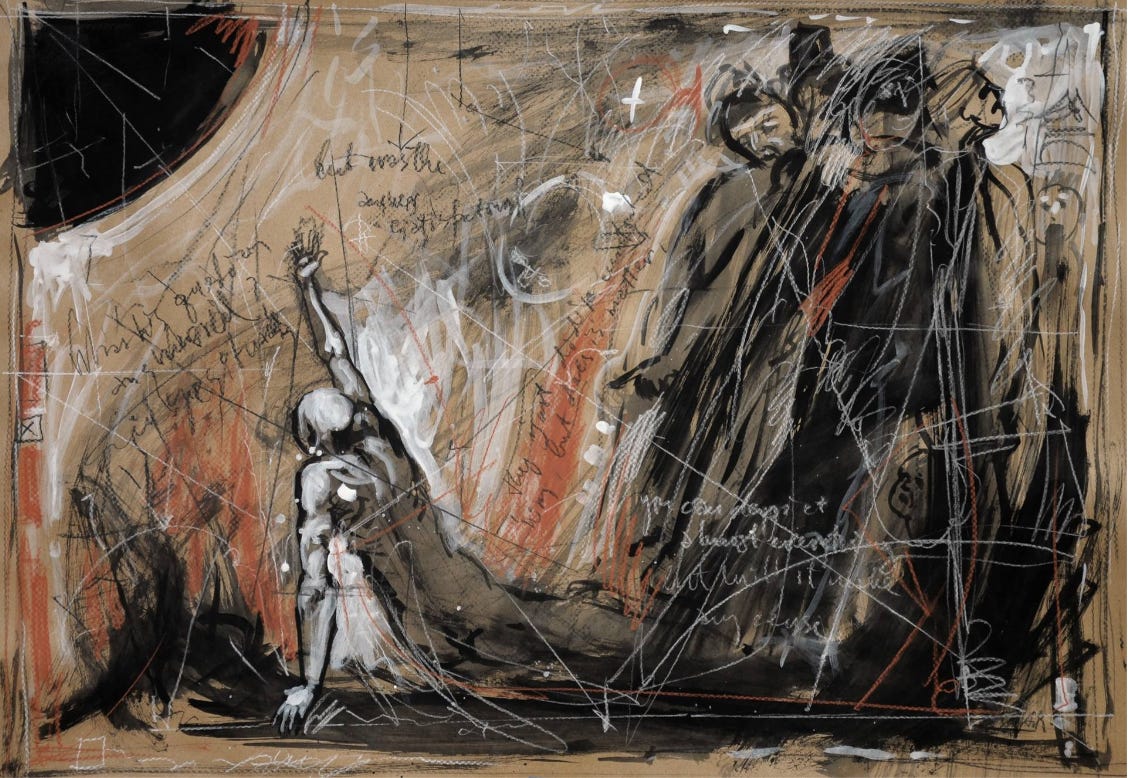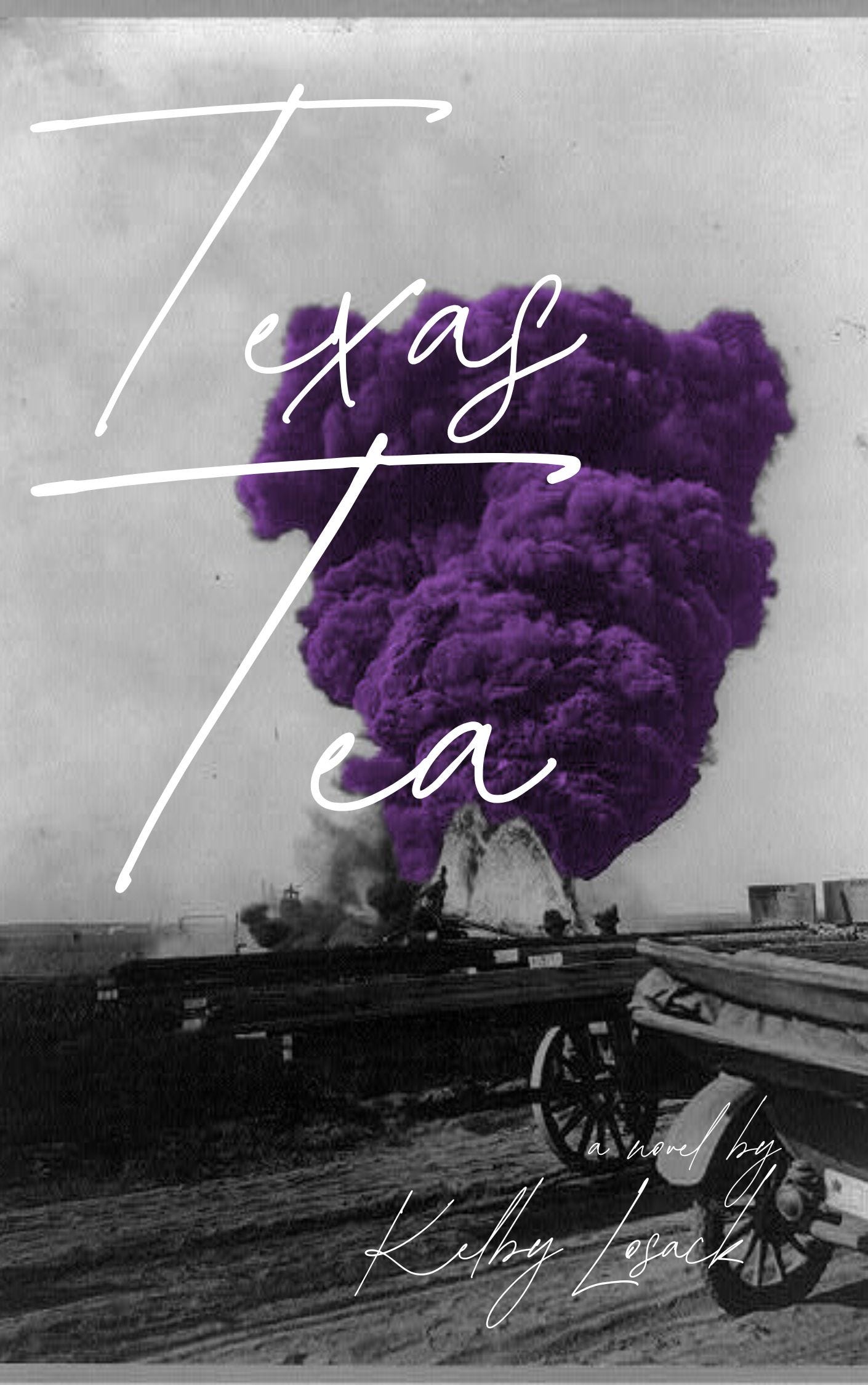The Tao of Job
New perspective on the most misunderstood book of the Bible.
I’ve been revisiting books of the Bible thanks to my boy Glen Rockney. We covered the Book of Exodus on a crossover episode of Rare Candy and Agitator (listen below), and will soon be doing the same for the Book of Job. Job has always been a tough one for Christians to wrap their heads around, especially Christians brought up on the prosperity gospel and the Deuteronomic logic of “obey God and you’ll be blessed; disobey and you’ll be cursed.” The Book of Job spends forty-two chapters complicating and contradicting this belief.
The basic premise of the book is this: Job is a prosperous and righteous man, the Devil believes his piety is based solely on his prosperity, the Devil dares God to fuck up Job’s world in order to test his devotion, and God says, ‘bet that.’ There’s a classic South Park bit that lowkey encapsulates pretty well most people’s interpretation of this plot, and why most Christians avoid talking about it.
To keep it transparent, I don’t think I’m a Christian. I believe in the Hebrew Bible as a holy book and profound literary masterpiece, but also as a compilation of many different books that are best approached within their own contexts, some of them being allegorical, some of them historical, most of them missing a lot in translation. I had only read the Book of Job once before and had the same interpretation as most: the fuck is God’s problem? Why’s he even listening to Satan? How could any man maintain faith in a god who ruthlessly slaughters his family?
On a recent revisit, though, I finally resonated with Job’s story as a Taoist text.
For the hardcore church heads I might have lost with that statement and everything I’m finna follow it up with: the “non-blasphemous” way to interpret this is simply that divine sovereignty is beyond human comprehension. Humanity’s relationship to God is based on an ebb and flow of experiences, not a transactional exchange of faith for blessings. And that’s a tough one to reconcile if your metaphysics are based on cosmic justice, if your sojourn is a quest for theological answers rather than mystical encounters.
But, back to the Tao…
The core concept of Taoism is wu wei—an alignment of oneself within the Tao. It is a state of being in flow with the universe, of being in harmony with God. Throughout the Book of Job, this fool is struggling to understand how the God he’s so dedicated to could rip everything away from him so mercilessly. Even though he takes it all on the chin and never curses or rebukes God, Job’s suffering persists with his resistance. His friends get in his ear with their doctrinal musings on his predicament and their insistence God would only enact such punishment on a wicked sinner. Job, knowing his series of tragedies is unwarranted, naturally finds it hard to understand God’s motives when his livestock, his family, his whole world crumbles from under him. It is not until the very end—when Job completely surrenders (“I despise myself and repent in dust and ashes”)—that he is once again in favor with God/in flow with the Way.
But why would God torment one of his most faithful servants to prove a point to Satan in the first place?
The Taoist belief is that the Way of Heaven is absent the moral frameworks of humanity. “Heaven and Earth are not humane; they treat all things as straw dogs.” —Tao Te Ching, chapter 5.
Context is critical, too. This is Old Testament God, the God who ends up straw-dogging his own son for the sins of the entire world. But see, here I go tryna understand this shit, tryna be like Job during his suffering, when the core message of the Book of Job is the same as the Tao: true wisdom lies in humility before the unknowable.
“The Tao that can be spoken is not the eternal Tao.” —Tao Te Ching, chapter 1.
The trials of Job represent ego death and the shedding of such labels as “righteous,” “pious,” and “blessed” to return to pu 朴—the “uncarved block,” the pure potential.
38 Then the Lord spoke to Job out of the storm. He said:
2 “Who is this that obscures my plans
with words without knowledge?
3 Brace yourself like a man;
I will question you,
and you shall answer me.4“Where were you when I laid the earth’s foundation?
Tell me, if you understand.
5 Who marked off its dimensions? Surely you know!
Who stretched a measuring line across it?
6 On what were its footings set,
or who laid its cornerstone—
7 while the morning stars sang together
and all the angels shouted for joy?8 “Who shut up the sea behind doors
when it burst forth from the womb,
9 when I made the clouds its garment
and wrapped it in thick darkness,
10 when I fixed limits for it
and set its doors and bars in place,
11 when I said, ‘This far you may come and no farther;
here is where your proud waves halt’?12 “Have you ever given orders to the morning,
or shown the dawn its place,
13 that it might take the earth by the edges
and shake the wicked out of it?
14 The earth takes shape like clay under a seal;
its features stand out like those of a garment.
15 The wicked are denied their light,
and their upraised arm is broken.16 “Have you journeyed to the springs of the sea
or walked in the recesses of the deep?
17 Have the gates of death been shown to you?
Have you seen the gates of the deepest darkness?
18 Have you comprehended the vast expanses of the earth?
Tell me, if you know all this.19 “What is the way to the abode of light?
And where does darkness reside?
20 Can you take them to their places?
Do you know the paths to their dwellings?
21 Surely you know, for you were already born!
You have lived so many years!
Taoism values mystical acceptance over rational dominance, which is what God is commanding of Job when what culminates from all of Job’s questioning is not answers, but rather an attack of overwhelming awe, a reminder that ‘I am God; you are not.’
“Those who know do not speak; those who speak do not know.” —Tao Te Ching, chapter 56.
The end of the Book of Job mirrors its beginning: here is a righteous man blessed by God. But the restoration of Job’s fortune is not a resolution of his suffering. His family is not resurrected. Nothing he lost comes back, even though he regains his wealth, has seven more kids, and lives over a hundred more years. The story closes out on the Taoist note of cyclical return.
“Returning is the motion of the Tao.” —Tao Te Ching, chapter 40.
Because everything looks cool through a kaleidoscope, I’d like to throw some Tantric Buddhism in the mix, but that’ll have to be its own essay. Or I’ll just save it for the next Rare Candy x Agitator Bible Study.
On another note, my next joint Texas Tea is available for pre-order. Cover and synopsis right chea:
Orphaned by a psychotic rodeo clown and taken in by the most infamous rancher in Texas, Cutter Thibodaux was bred to be a thug. He has lived and cowboyed on Purple Sky Ranch for twenty years, breaking horses, herding cattle, and keeping secret the things that lie beneath a quarter million acres of land bought in blood.
From the Gulf Coast to Houston, between rodeos and cattle auctions, Cutter and his fellow misfit ranch hands push the Purple Sky's primary source of revenue: prescription-grade cough syrup and military-grade weapons. When Cutter stumbles into the role of moonlight bodyguard for a local rap legend and expands his hustle with a flamboyant and ruthless strip club owner, he feels he is growing into the certified gangster he was destined to be.
The aging Cedric Dixon—owner of Purple Sky Ranch, descendant of buffalo soldiers and blues musicians, most feared cowboy north of Mexico—only dreams of hanging his hat in peace, and leaving a legitimately prosperous business in the care of his daughter, Millie. But standing in the way of that dream are a bloodthirsty detective, crooked cops on his payroll, a dying way of existence, and the orphan Cedric helped to mold into a monster.
Half hoodrat noir, half tragic cowboy saga, Texas Tea is a bleeding raw take on the neo-western pulp novel—equal parts grit, heart, and poetic chaos. For fans of Larry McMurtry, Cormac McCarthy, Yellowstone, and DJ Screw.





Damn.
Two things:
1) I'm slowly working my way through the Old Testament for the first time in my life, and am currently most of the way into Ezekiel. This Taoist interpretation of the human relationship with God changes everything. You are the preacher I needed.
2) Texas Tea sounds like it was written specifically for me. Is it paperback only for now? If so, are you shipping to Japan?
Fantastic stuff.
I'm just getting into Taoism and wrote a post about Job around the same time as this dropped. Wild syncs.
https://substack.com/@revjangles/p-166904561